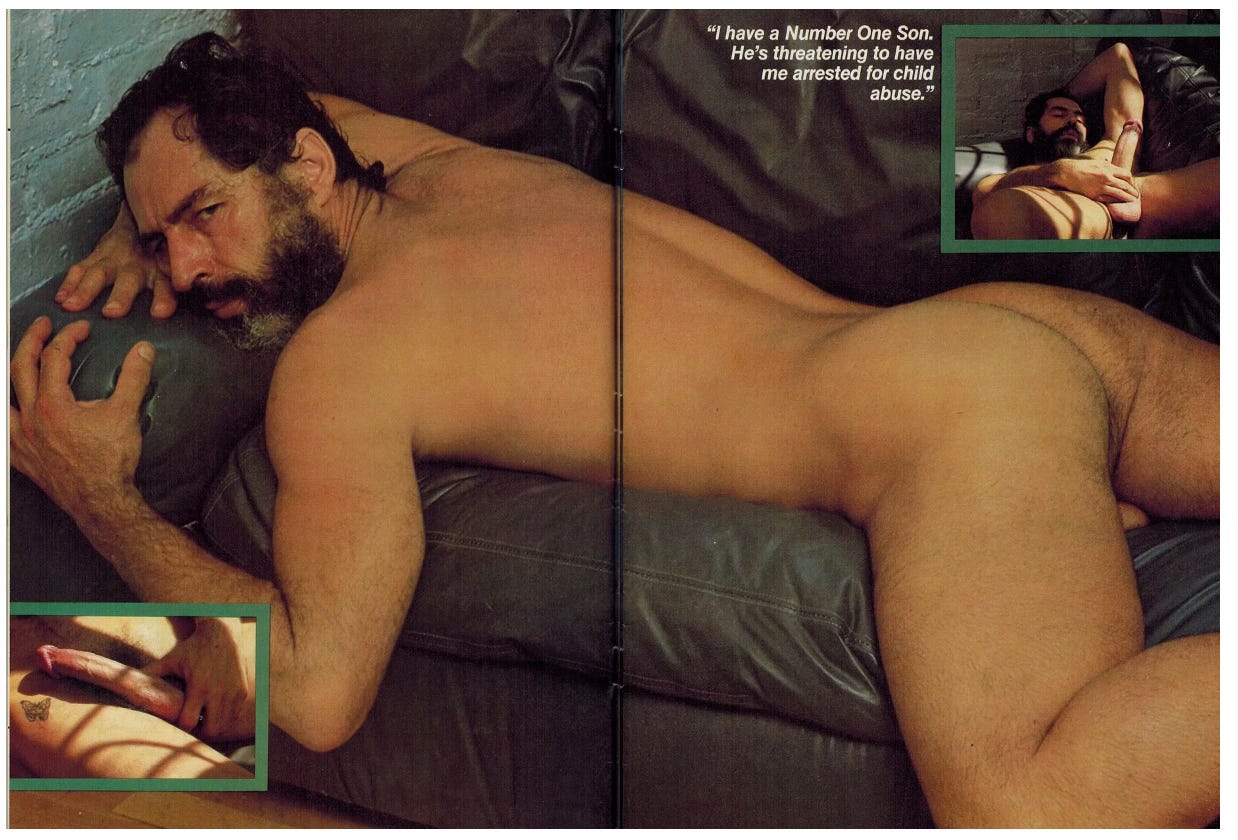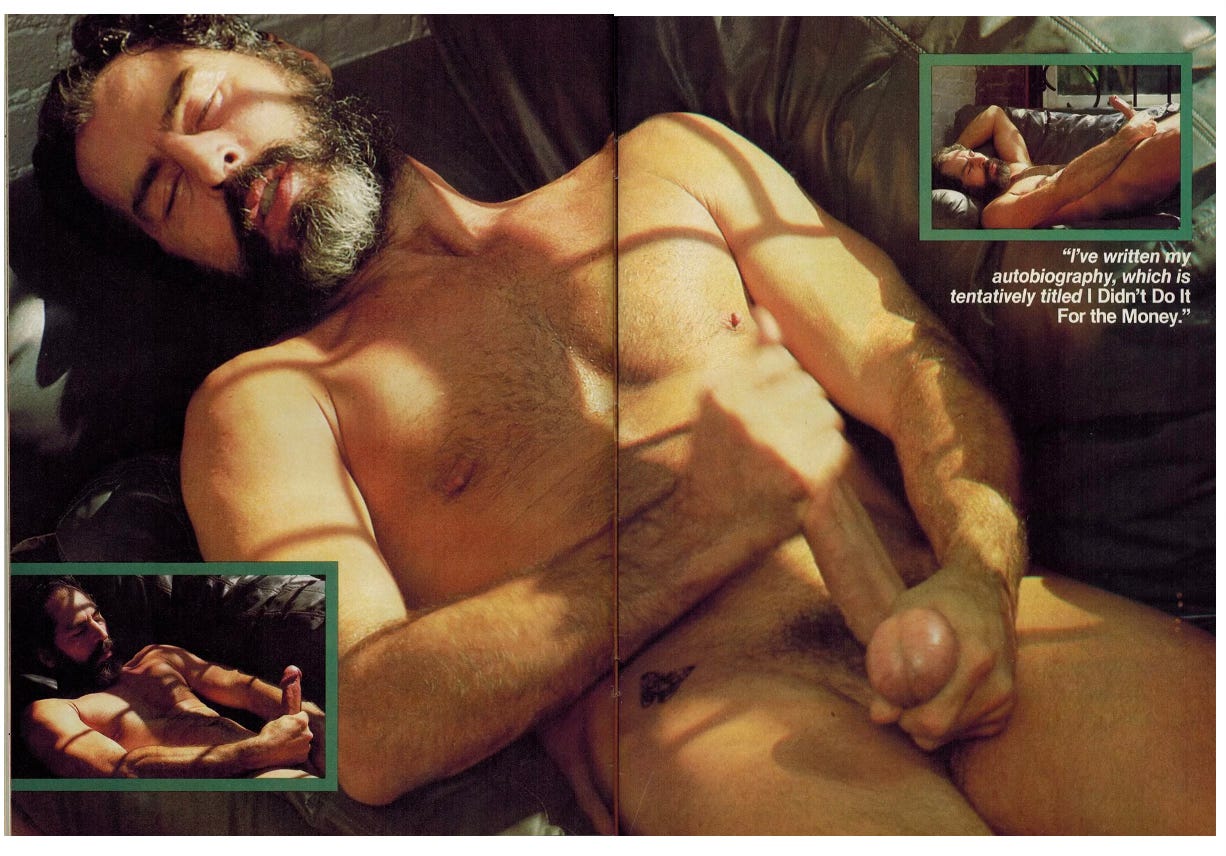I included a few excerpts from my interview with Richard Locke last year in a round-up feature titled “Icons: Richard Locke, Casey Donovan, Dick Fisk, Kurt Marshall, Jack Wrangler.” Obviously, these were gay superstars of the 1980s and beyond. To read about them, see Chapter Sixteen of Did You Sleep With the Models?, which ran on April 7, 2023.
Why only excerpts when Locke was, as I called him, “The Daddy of Us All”? Well, so many men, so little time: at that point in my chronicle of editing Mandate, Honcho, and Playguy, I expected to conclude near the end of last year. But, by early autumn of 2023 I realized, owing to enormous reader response, that I could keep going. That is certainly what I wanted to do, and I’m happy to say that material from the magazines, and from other sources as well, stretches to the vanishing point.
Richard Locke was forty-two years old when he sat down in my office one blustery January afternoon in 1984. The interview ran in the May issue of Honcho.
Locke was born in Oakland, California, in 1941, he attended Chico State College, spent three years in the army in Germany, and became a new kind of porn star when Joe Gage cast him as a proletarian stud in his “Working Man Trilogy”: Kansas City Trucking Co. (1976), El Paso Wrecking Corp. (1978), and L.A. Tool and Die (1979). Seeing large ads for these films posted in New York subway stations at the time, I thought, Gay liberation is really here! Silly me. Despite its boasts of liberalism and tolerance, New York then was a hospitable Petri dish for homophobia, racism, and bigotry in all shapes and sizes. It has changed very little. Donald Trump, after all, didn't metastasize from Utah or Mississippi but from Queens.
In 1983, Richard learned the result of his HIV test. Already, in January of that year, he had become an AIDS activist, raising money and advocating safer sex. He died in 1996 at age fifty-five.
Rereading the interview, I caution readers not to follow blindly his advice on nutrition, relationships, or safer sex. In 1983 relatively little was known about AIDS and it’s obvious that Richard’s opinions were just that: opinions. Though I enjoyed interviewing him, as I look back I can’t avoid the thought that certain ones of his dicta recall the foolish counsel of Oprah’s ill-chosen healers, Dr. Oz and Dr. Phil.










